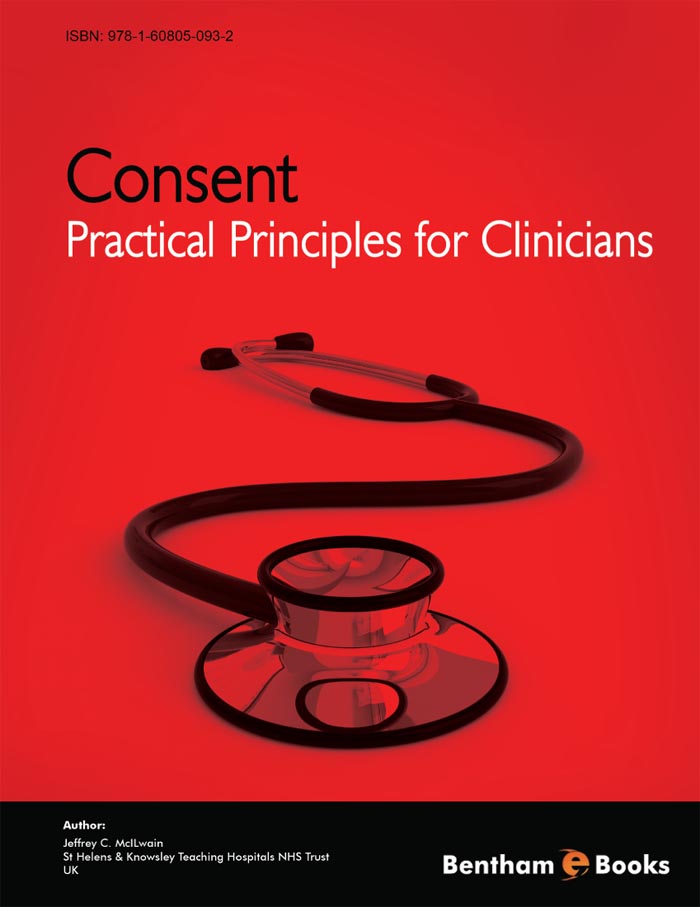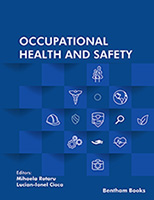Introduction
Obtaining proper patient consent in clinical care is vital in current times. The approach of 'doctor knows best' is now superseded by patient rights to make decisions. The approach of this book from the author's experience of 13 years in Clinical Risk Management with a special interest in generic consent is to combine different disciplines into a more unified approach that reflects every day practice, rather than citing individual examples of law case studies. By analyzing the elements of these different disciplines a more logical, practical and synergistic approach to consent is achieved. This book differs from others in that the principle elements are combined into one text. The book should help professional and trainee clinicians to acquire a wider understanding of the fundamental principles of medical law, ethics and risk management and their combined role in many situations, particularly in the NHS.
Consent is a fundamental principle that shapes the relationship between a patient and a clinician. A clinician cannot proceed to deliver, in physical terms, the proposed system of healthcare management for a disease or a disorder without the patient giving their permission to do so. Over the past century there has been a shift from medical paternalism of “I know what is best for you and you shall have it” towards a more autonomous approach of “Please make up your mind of what is best for you”. This process has accelerated over the past 15 years largely due to the effects of the litigation process. Prior to 1991 in the UK doctors subscribed to Medical Defence Organisations (MDO’s) to protect themselves from allegations of clinical negligence. The NHS effectively devolved such negligence issues to be part of the professional’s life. Crown Immunity [1, 2] protected NHS employees from prosecution of a criminal matter. When this was lifted within the NHS in 1990 it was replaced by Crown Indemnity [3] whereby each NHS organisation became directly responsible for the acts of its employees, including allegations of negligence. Thereafter the establishment of the NHS Litigation Authority (NHSLA) to manage and monitor allegations of negligence resulted in recognition of the need for stronger risk management controls within NHS organisations and so the concept of the Clinical Negligence Scheme for Trusts (CNST) was born whereby there would be standardised risk imperatives to be achieved [4].
Part of these standards includes consent and this stimulated the UK Department of Health to produce standardised consent forms and guidance [5, 6] in 2003 throughout the NHS. Organisations within the NHS who wish to achieve a reduction in their contribution to the mutuality of the crown indemnity provided through NHSLA must subscribe to these standardised forms.
Part of the acceleration of consent taking and giving has been realised through events in Alder Hey Hospital vis a vis organ retention with the establishment of the Human Tissue Authority in 2004 [7] to cover the donation, storage and display of human tissue for various purposes. The fields of medical research which already had a strong consent position have also been strengthened [8] within the UK Medical Research Council (MRC).
It is apparent that faced with a change from immunity to indemnity and a rising ability of the legal profession within the area of negligence that consent has risen from “sign this piece of paper” to a complicated system with internal auditing through risk management processes and evidence trails.
That there is a less than 100% ability or compliance in consent has been shown in a survey published by Hamilton [9] whereby the range of ability to obtain complete “informed consent” between FY 1&2, SpR and Consultant surgeons varied between 69% and 80%. In obtaining consent from children varied between 50% and 64%, from psychiatric patients between 70% and 90% and for research and screening between 80% and 100%. Although this was a small sample and a survey it rather defies the belief that consent taking has actually vii penetrated the professional surgeon’s training and ability even in 2007. Interestingly the SpR group (registrars) fared best overall suggesting that senior trainees better more junior trainees and even their peers and trainers!
[1] Select Committee on Public Accounts Minutes of Evidence APPENDIX 2 Supplementary memorandum submitted by HM Treasury
http://www.publications.parliament.uk/pa/cm200203/cmselect/cmpubacc/ 588/2102314 .htm
[2] Public and Commercial Services Union Knowledge Centres / Health and Safety / Legal Summaries / Crown Immunity
http://www.pcs.org.uk/Templates/Internal.asp?NodeID=884239
[3] bma.org.uk Archive/Archive - Medical careers and education Guide for doctors new to the UK October 2004 http://www.bma.org.uk/ap.nsf/Content/GuidefordoctorsnewtoUK~indemnity
[4] NHS Litigation Authority Clinical Negligence Scheme for Trusts (CNST)
http://www.nhsla.com/Claims/Schemes/CNST/
[5] Department of Health Policy and Guidance about the consent form
http://www.dh.gov.uk/en/Policyandguidance/Healthandsocialcaretopics/Consent/Consentgeneralinformation/DH_4015937
[6] Department of Health Policy and Guidance consent key documents
http://www.dh.gov.uk/en/Policyandguidance/Healthandsocialcaretopics/Consent/Consentgeneralinformation/index.htm
[7] Human Tissue Authority about the HTA http://www.hta.gov.uk/about_hta.cfm
[8] Medical Research Council Policy and Guidance Consent to take placed in research
http://www.mrc.ac.uk/PolicyGuidance/EthicsAndGovernance/InformedConsent/index.htm
[9] Knowledge of the laws in consent in surgical trainees. Hamilton P Bismil Q. Ricketts DM. Annals of the Royal College of Surgeons England. 2007;89:86.





